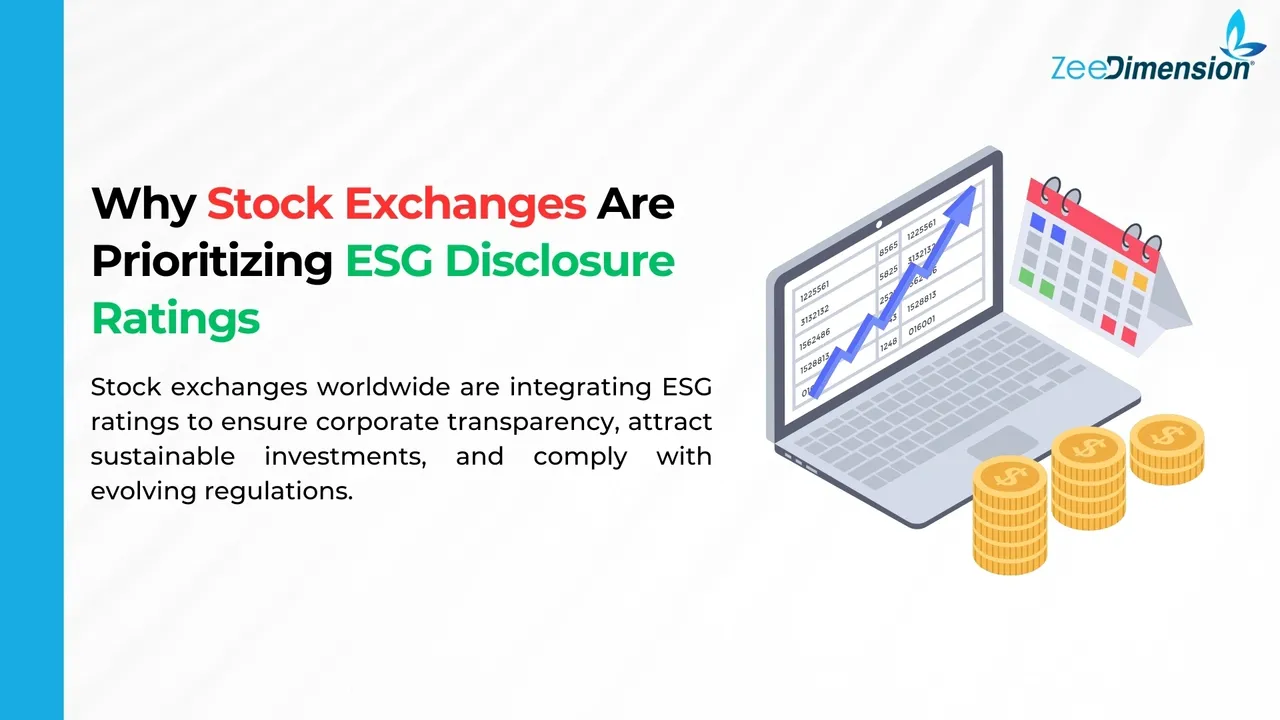
Stock exchanges around the world are adopting ESG ratings to enhance corporate transparency, draw sustainable investments, and stay ahead of evolving regulations.
The Growing Importance of ESG Disclosure Ratings
ESG disclosure ratings matter more than ever as investors prioritize sustainability, regulators tighten reporting rules, and companies build market credibility. Stock exchanges drive alignment with global ESG standards, making transparency essential.
Investor Demand for ESG Transparency
– Investors prioritize companies with strong ESG performance.
– 80% of institutional investors consider ESG risks financially material.
– ESG-focused investments are expected to grow significantly.
Stock exchanges must provide clear ESG ratings to guide investment decisions.
Regulatory Pressures Driving ESG Disclosures
Regulatory bodies around the world are tightening ESG reporting requirements. The EU’s Corporate Sustainability Reporting Directive (CSRD), the SEC’s climate disclosure rules, and the ISSB’s global sustainability standards are driving this shift. Stock exchanges are also crucial in ensuring compliance and maintaining market integrity.
How ESG Ratings Enhance Market Credibility
ESG failures can erode stock value (e.g., Volkswagen emissions scandal).
ESG ratings help mitigate risks like climate change and governance failures.
Investors trust markets that enforce strong ESG disclosure.
Stock exchanges reduce systemic risks by promoting transparency.
Case 1 – Hong Kong Stock Exchange (HKEX)
Since 2020, the Hong Kong Stock Exchange (HKEX) has mandated ESG reporting for all listed companies, requiring them to disclose material risks and mitigation strategies. This move has boosted sustainability-driven investments and elevated stock valuations, positioning HKEX as a leader in corporate accountability and ESG-focused investment.
Case 2 – New York Stock Exchange (NYSE)
Partnered with ESG data providers to create NYSE ESG Leaders Index.
Helps investors identify high-performing ESG companies.
Outcome: Strong ESG firms attract institutional investment & lower capital costs.
NYSE is shaping sustainable investment strategies.
Case 3 – London Stock Exchange (LSE)
Introduced the Green Economy Mark to recognize companies generating over 50% of their revenue from green activities. This initiative boosts investor confidence, improves access to green financing, and encourages businesses to adopt sustainable models, supporting the broader transition to a green economy.
Case 4 – Singapore Exchange (SGX)
SGX mandates companies to submit sustainability reports with ESG indicators, emphasizing climate risk disclosure and governance transparency. This focus leads to lower capital costs for firms with strong ESG scores, boosting both corporate responsibility and market stability.
The Key Benefits of ESG Disclosure Ratings
ESG disclosure ratings boost market appeal by attracting investors focused on sustainability. They help companies align with global standards, ensuring regulatory compliance while minimizing financial and reputational risks. Increased transparency fosters trust, enhancing investor confidence. Stock exchanges are leading the way in shaping responsible investing.
The Future of ESG Disclosure in Stock Markets
The future of ESG disclosure will see stricter reporting requirements from ISSB, CSRD, and SEC. AI-driven ESG analytics will improve data quality and decision-making. As ESG activists and investors grow in influence, corporate governance will increasingly reflect sustainability priorities. Sustainability is now essential for market success.
Conclusion
Stock exchanges are prioritizing ESG disclosures to boost transparency, attract sustainable investments, and ensure compliance. Embracing ESG builds trust and long-term success. Is your business ESG-ready? Let’s discuss!







